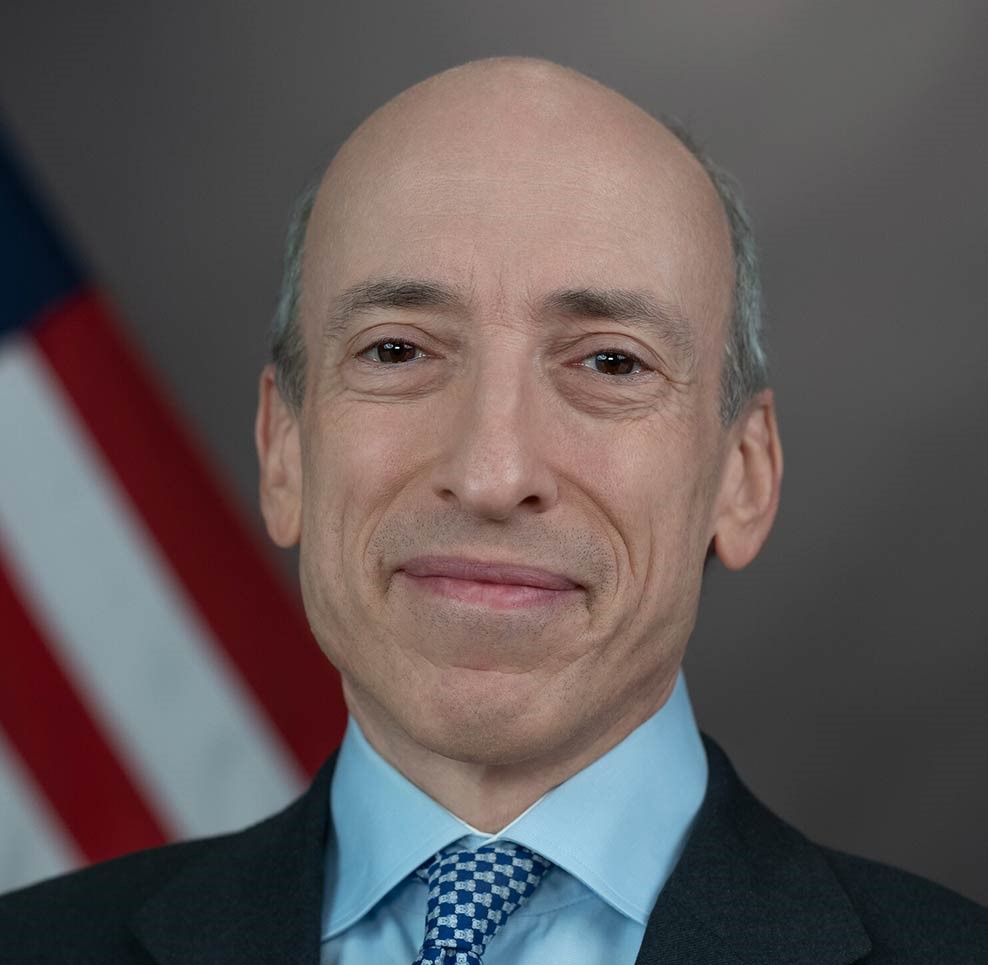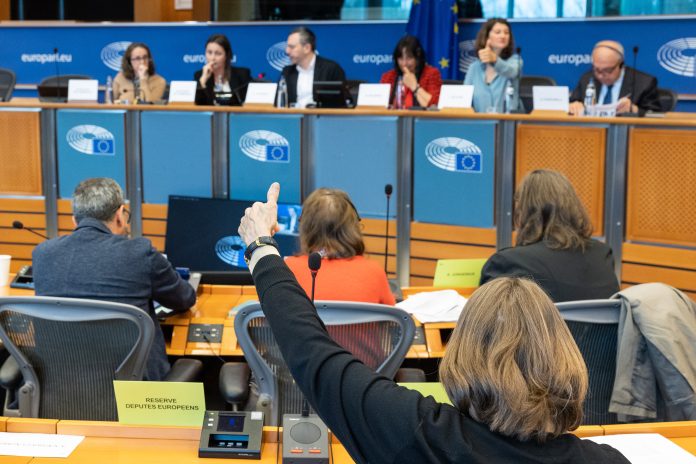SEC Announces Enforcement Results for FY22

Commission filed 760 enforcement actions and recovered record $6.4 billion in penalties and disgorgement on behalf of investing public
The Securities and Exchange Commission today announced that it filed 760 total enforcement actions in fiscal year 2022, a 9 percent increase over the prior year. These included 462 new, or “stand alone,” enforcement actions, a 6.5 percent increase over fiscal year 2021; 129 actions against issuers who were allegedly delinquent in making required filings with the SEC; and 169 “follow-on” administrative proceedings seeking to bar or suspend individuals from certain functions in the securities markets based on criminal convictions, civil injunctions, or other orders. The SEC’s stand-alone enforcement actions in fiscal year 2022 ran the gamut of conduct, from “first-of-their-kind” actions to cases charging traditional securities law violations.
See related articles: SEC Charges 16 Wall Street Firms with Widespread Recordkeeping Failures, Barclays Agrees to a $361 Million Settlement to Resolve SEC Charges Relating to Over-Issuances of Securities
Money ordered in SEC actions, comprising civil penalties, disgorgement, and pre-judgment interest, totaled $6.439 billion, the most on record in SEC history and up from $3.852 billion in fiscal year 2021. Of the total money ordered, civil penalties, at $4.194 billion, were also the highest on record. Disgorgement, at $2.245 billion, decreased by 6 percent from fiscal year 2021. Fiscal year 2022 was the SEC’s second highest year ever in whistleblower awards, in terms of both the number of individuals awarded and the total dollar amounts awarded.
“I continue to be impressed with our Division of Enforcement. These numbers, though, tell only part of the story,” said SEC Chair Gary Gensler. “Enforcement results change from year to year. What stays the same is the staff’s commitment to follow the facts wherever they lead.”
“As reflected in these results, the Enforcement Division is working with a sense of urgency to protect investors, hold wrongdoers accountable and deter future misconduct in our financial markets,” said Gurbir S. Grewal, Director of the Division of Enforcement. “A centerpiece of those efforts is ensuring that we are using every tool in our toolkit, including penalties that have a deterrent effect and are viewed as more than the cost of doing business. While we set a Commission record this past fiscal year for total money ordered at $6.4 billion, including a record $4.2 billion in penalties, we don’t expect to break these records and set new ones each year because we expect behaviors to change. We expect compliance.”
“The breadth of issues covered in last year’s actions amply demonstrates Enforcement staff’s skill in uncovering violations, its resourcefulness in deploying the right investigative tools and case strategy, and, above all, its doggedness in pursuing wrongdoers and obtaining remedies that promote market integrity while helping to protect investors,” said Sanjay Wadhwa, Deputy Director of the Division of Enforcement. “From investigative attorneys and litigators to accountants, data scientists, investigators, and support staff, each member of Enforcement contributed to the many successes of the Division in the past fiscal year, and it is a great privilege to serve alongside them in protecting U.S. investors.”
Robust Enforcement
A hallmark of the Enforcement Program in fiscal year 2022 was robust enforcement through resolutions that imposed penalties designed to deter future violations, establish accountability from major institutions, and order tailored undertakings that provide potential roadmaps for compliance by other firms. This is exemplified by the SEC’s actions against JP Morgan Securities LLC, 15 other broker dealers, and 1 investment adviser for widespread and longstanding failures to maintain and preserve work-related text message communications conducted on employees’ personal devices. Moreover, each of the firms agreed to bespoke undertakings designed to remediate past failures and prevent future misconduct. In aggregate, the firms paid $1.235 billion in penalties. The SEC’s orders included admissions of the wrongful conduct and acknowledgements of violations from all 17 firms.
Penalties, Undertakings, and Admissions
To deter future misconduct and enhance public accountability, the SEC in a number of actions recalibrated penalties for certain violations, included prophylactic remedies, and required admissions where appropriate. For example, the $1.235 billion in cumulative penalties paid in connection with the recordkeeping violations made clear that the fines were not just a cost of doing business. The undertakings in those cases included retention of compliance consultants to, among other things, conduct comprehensive reviews of the firms’ policies and procedures relating to the retention of electronic communications found on personal devices. In addition, the firms admitted their conduct and acknowledged that their conduct violated recordkeeping provisions of the federal securities laws.
Similarly, the SEC’s June 2022 action against Ernst & Young LLP featured the largest penalty ever imposed by the SEC against an audit firm. In that matter, the firm admitted, among other things, that over multiple years, a significant number of EY audit professionals cheated on the ethics component of CPA exams and various continuing professional education courses required to maintain CPA licenses.
In the SEC’s action charging Barclays PLC and Barclays Bank PLC with an illegal over-issuance of securities, the SEC imposed a $200 million penalty. The SEC’s order included Barclays’ undertakings to adopt and implement a number of enhancements designed to effect compliance with Section 5 of the Securities Act. Barclays also undertook to complete an audit of policies and procedures and internal controls related to Section 5 compliance, and to submit a resulting report to the Audit Committee of the firms’ Boards of Directors and the SEC staff.
Finally, in an action charging Allianz Global Investors U.S. LLC in connection with an alleged massive fraudulent scheme that concealed the immense downside risks of a complex options trading strategy, the SEC ordered Allianz to pay more than $1 billion in combined penalties, disgorgement, and prejudgment interest. Allianz admitted findings in the SEC’s order and acknowledged admitted that its conduct violated the federal securities laws.
Individual accountability
Individual accountability is a pillar of the SEC’s enforcement program. Similar to prior years, in fiscal year 2022, more than two-thirds of the SEC’s stand-alone enforcement actions involved at least one individual defendant or respondent. These individuals included senior public company executives, such as Dennis Muilenburg, Boeing’s former CEO, who was charged with making materially misleading public statements about the safety of the company’s 737 MAX planes following crashes in 2018 and 2019, and Ronald D. Paul, Eagle Bancorp’s former CEO, whom the SEC charged with negligently making false and misleading statements about related party loans extended by the bank to Paul’s family trusts. The SEC also charged senior individuals in the financial industry, such as James Velissaris, former Chief Investment Officer of Infinity Q Capital Management, for allegedly overvaluing assets managed by the firm by more than $1 billion and allegedly preventing investors from redeeming their funds by concealing this scheme, while personally pocketing more than $26 million in fees.
To further ensure accountability from senior executives at public companies and incentivize them to prevent misconduct at their firms, the SEC in fiscal year 2022 charged several executives under Sarbanes-Oxley (SOX) 304, and ordered them to return bonuses and compensation following misconduct at their firms, even though the executives were not personally charged with the misconduct. For example, three former senior executives of infrastructure company Granite Construction, Inc. were ordered to return nearly $2 million in bonuses and compensation in connection with Granite restating its financials following misconduct by another former official. Similarly, the founder and former CEO of technology company Synchronoss Technologies, Inc. agreed to reimburse the company more than $1.3 million in stock sale profits and bonuses as well as return previously granted shares of company stock pursuant to SOX 304.
Parallel Investigations with Criminal Law Enforcement
The Enforcement Division often refers certain cases, particularly those involving recidivists or violators who engage in intentional misconduct, to criminal authorities. In many cases, these referrals result in parallel investigations and, ultimately, charges filed by the SEC and criminal law enforcement. Fiscal year 2022 featured parallel SEC actions and criminal prosecutions addressing particularly egregious alleged misconduct. Examples included the cases against James Velissaris, Allianz and three former executives, numerous individuals allegedly involved in insider trading, and family office Archegos Capital Management, LP and its founder and owner Sung Kook (Bill) Hwang, whom the SEC charged with orchestrating a fraudulent scheme that resulted in billions of dollars in losses. The SEC also charged Archegos’s Chief Financial Officer, head trader, and Chief Risk Officer, for their respective roles in the alleged fraudulent scheme.
Winning at trial and in litigation
In contested matters, the extraordinary team of attorneys and support staff from the Division’s Trial Unit bring to bear the legal skills and sophisticated trial presentation tools necessary to prevail. The Division’s Trial Unit, including staff from all of the SEC’s Offices, achieved tremendous results on behalf of investors, winning favorable verdicts in 12 of the 15 trials – the most conducted by the Division in a single year within the past decade. These cases spanned an array of issues, including investment advisory fraud, securities fraud and registration violations, and fraud in connection with the operation of a private investment fund. The staff also obtained complete wins on liability at the summary judgment stage in another nine matters, as well as partial summary judgment in many others, on behalf of the SEC.
Leveraging The Entire Enforcement Toolkit
The Division uses a variety of tools to generate and advance its investigations and hold accountable those who violate the securities laws. These include technological and analytic tools, as well as cooperation and whistleblower programs.
Use of Data Analytics
Enforcement leveraged sophisticated analytic work by its staff and staff in other Divisions throughout the SEC to assist in a broad array of enforcement actions, covering alleged misconduct that ranged from “hacking to trade” and “boiler room” or “pump and dump” schemes, to an alleged complex microcap market manipulation effected by hacking into retail brokerage accounts, to “cherry-picking” and traditional insider trading.
In July 2022, the SEC charged nine individuals in connection with three separate alleged insider trading schemes that together yielded more than $6.8 million in ill-gotten gains. The defendants in these actions include a former chief information security officer, an investment banker, and a former FBI trainee. All three actions originated from the Analysis and Detection Center of the Division’s Market Abuse Unit, using data analytics that detect suspicious trading patterns, and all involved parallel criminal charges filed by the U.S. Attorney’s Office for the Southern District of New York.
The Division’s Office of Market Intelligence reviewed and triaged more than 38,500 tips, complaints, and referrals of possible securities law violations submitted by the public, self-regulatory organizations, and others. Staff from the Office of Investigative & Market Analytics assisted with investigations that led to enforcement actions against a pair of investment advisers for unauthorized and undisclosed inter-fund loan; 16 defendants allegedly involved in international penny stock schemes; and a father and son for alleged fraudulent market manipulation.
Recognizing Meaningful Cooperation
Tangible cooperation that significantly aids enforcement investigations and litigation can yield meaningful benefits. Assistance from cooperators can help expedite investigations and bring to light important evidence. When individuals and entities cooperate meaningfully, the Commission may, and does, take that into account in the remedies it orders. Examples of the benefits that firms may obtain due to cooperation include the following:
- Headspin, Inc., whose former CEO allegedly fraudulently propelled the company’s valuation to more than $1 billion by falsely inflating key financial metrics and doctoring internal sales records. Due to significant remedial measures taken by Headspin, the SEC charged Headspin with fraud but did not impose a penalty on the company for its wrongful conduct.
- ProPetro Holding Corp., which failed to properly disclose executive perks and stock pledges its CEO received. The SEC agreed not to impose a civil penalty on ProPetro for its wrongful conduct thanks to ProPetro’s cooperation with the staff’s investigation and its extensive remediation.
- Baxter International, Inc., which engaged in improper intra-company foreign exchange transactions and misstated the company’s income. The SEC agreed to substantially limit the penalty imposed for the wrongful conduct due to Baxter’s self-reporting, its cooperation with the investigation, and remedial measures it took.
Rewarding and Protecting Whistleblowers
The SEC’s Office of the Whistleblower is an integral part of the Enforcement Program. In fiscal year 2022, the SEC issued approximately $229 million in 103 awards, making it the SEC’s second highest year in terms of dollar amounts and number of awards. The Whistleblower Program also received a record high number of whistleblower tips alleging wrongdoing—more than 12,300 whistleblower tips—in fiscal year 2022.
In addition to vigorously safeguarding whistleblowers’ anonymity, the SEC protects them by pursuing individuals or entities who take steps to impede, or retaliate against them for, their whistleblowing. This was reflected in enforcement actions against the Brink’s Company, which the SEC charged and penalized for requiring certain employees to sign restrictive confidentiality agreements, and against the co-founder of a technology company, whom the SEC charged with impeding an employee from communicating with the SEC regarding potential misconduct. In another matter, the SEC’s commitment was rewarded when a court granted summary judgment to the SEC in litigation charging that the defendants had illegally conditioned the return of investor money on the investors’ signing agreements that prohibited them from reporting potential securities-law violations to law enforcement. SEC v. Collector’s Coffee, 19 Civ. 4355 (VM), 2021 U.S. Dist. LEXIS 22216,| 2021 WL 5360440 (S.D.N.Y. Nov. 17, 2021).
Substantive Breadth and Depth
In fiscal year 2022, the SEC brought enforcement actions that address misconduct across a wide variety of violations and violators in the securities markets.
Financial fraud and issuer disclosure
Public company disclosure is the bedrock of our securities markets. The SEC places a high priority on pursuing issuers or their employees who make materially inaccurate disclosures, as well as auditors and their professionals who violate applicable laws and rules in connection with such disclosures. The Division’s attorneys and accountants regularly investigate and recommend enforcement actions charging misconduct by issuers, auditors, and their employees. Examples include cases in which the SEC charged:
- The Boeing Company and its former CEO for misleading investors about the safety of the company’s 737 MAX planes following crashes in 2018 and 2019.
- Compass Minerals International Inc. for misleading investors about a technology upgrade the company claimed would reduce costs but ultimately increased costs, and for failing to properly assess whether to disclose financial risks created by their excessive discharge of mercury in Brazil.
- NVIDIA Corporation for inadequate disclosures concerning the impact of cryptomining on the company’s gaming business.
- Audit firm RSM US LLP and three senior-level employees for failing to properly audit a client company’s financial statements over a four-year period, when that client was improperly inflating revenues.
Focus on gatekeepers
The SEC brought a number of enforcement actions in fiscal year 2022 charging gatekeepers with failing to live up to their heightened trust and responsibility. These included:
Auditors
- Charges against Deloitte’s China-based affiliate for failing to comply with fundamental U.S. auditing requirements when auditing U.S. issuers and foreign companies listed on U.S. exchanges, allowing clients to select their own samples for testing, and having clients prepare their own audit documentation.
- The settled action, including admissions and the highest penalty ever ordered by the SEC against an audit firm, against Ernst & Young LLP.
- Charges against audit firm CohnReznick LLP for improper professional conduct on engagements for two clients in 2017. The SEC also charged three CohnReznick partners with improper professional conduct for violating numerous professional standards in their third quarter 2017 interim review and 2017 annual audit of one of the client’s financial statements.
Lawyers
- Settled charges against an attorney for his role in an unregistered, fraudulent securities offering, resulting in his suspension from practicing before the SEC as an attorney.
- A litigated action against an attorney for his alleged role in a would-be pump-and-dump scheme. In addition to other remedies, the SEC sought an injunction to prohibit him from providing legal services regarding securities offers or sales.
Transfer Agents
- Charges against recidivist offender Manhattan Transfer Registrar Company and its former principal alleging that they violated an associational bar the SEC had previously issued against them.
Crypto
Enforcement remains focused on the rapidly evolving crypto asset securities space. In May 2022, the SEC announced that it would add 20 positions to the renamed Crypto Assets and Cyber Unit (previously the Cyber Unit), nearly doubling that unit’s staffing. Staff across the Division also continued to investigate potential misconduct in this area, leading to significant enforcement actions including:
- Charges against BlockFi Lending LLC for failing to register the offers and sales of its retail crypto lending product, and, in a first-of-its-kind action against crypto lending platforms, for violating the registration requirements of the Investment Company Act of 1940.
- Charges against 11 individuals for their alleged roles creating and promoting Forsage, a fraudulent crypto pyramid and Ponzi scheme.
- Insider trading charges against Ishan Wahi and his associates, alleging that Wahi obtained material non-public information in his former role as a product manager at a crypto asset trading platform and tipped his associates ahead of multiple announcements regarding crypto asset securities that would be made available for trading on the platform, in advance of which his associates traded.
Cybersecurity and compliance
The SEC brought significant enforcement actions in fiscal year 2022 concerning failures by major firms to comply with core obligations including record-keeping and safeguarding customer information. These cases, and others like them, reflect the critical importance of firms ensuring that their policies, procedures, and practices keep pace with technological developments and the resulting changes in how business is conducted. In addition to the record-preservation matters described above, key cases reinforcing this importance include:
- Charges against J.P. Morgan Securities LLC, UBS Financial Services Inc., and TradeStation Securities, Inc. for insufficient policies and procedures to protect investors from identity theft, in violation of the SEC’s Identity Theft Red Flags Rule (Regulation S-ID).
- Charges against Morgan Stanley Smith Barney for extensive failures, over a five-year period, to protect the personal identifying information of approximately 15 million customers.
ESG
Environmental, social, and governance (ESG) concerns have grown increasingly important to many investors. As a result, the Division has focused attention on these issues with respect to public companies and investment products and strategies. In doing so, the staff applies time-tested principles concerning materiality, accuracy of disclosures, and fiduciary duty, as codified in federal statutes, regulations, and case law. These efforts resulted in SEC enforcement actions including:
- An action charging BNY Mellon Investment Adviser, Inc. for materially misleading statements and omissions about its consideration of ESG principles in making investment decisions for certain mutual funds.
- A litigated matter charging Vale S.A., one of the world’s largest iron ore producers, with allegedly making false and misleading claims to local governments, communities, and investors about the safety of its dams prior to the collapse of the Brumadinho dam in Brazil, which killed 270 people, caused serious environmental and social harm, and reduced the company’s market capitalization by more than $4 billion.
- Charges against robo-adviser Wahed Invest, LLC, which had marketed itself as providing advisory services compliant with Islamic, or Shari’ah law, but failed to adopt and implement written policies and procedures addressing how it would assure Shari’ah compliance on an ongoing basis.
Private funds
Recent years have seen significant growth in the amount of assets managed by advisers to private funds. Unique features of private fund investment may lend themselves to certain recurring issues including undisclosed conflicts of interest, fees and expenses, valuation, custody, and controls around material nonpublic information. In fiscal year 2022, the SEC brought a number of enforcement actions concerning conduct by private fund advisors and associated individuals. These actions included:
- Litigated and settled actions charging Allianz Global Investors U.S. LLC and three portfolio managers with a fraudulent scheme to conceal the downside risks of its “Structured Alpha” complex options trading strategy, which caused billions of dollars in losses to more than 100 institutional investors, including pension funds for teachers, clergy, bus drivers, and others.
- Charges against nine registered private fund advisers for failing to comply with the Custody Rule or update their Forms ADV to accurately reflect the status of their private fund clients’ financial statements.
- Charges against a fund adviser and its sole owner for allegedly fraudulently raising tens of millions of dollars in a private fund, misrepresenting the fund’s performance to investors, and misappropriating investor funds for personal use and to make Ponzi-style payments to other investors.
- An action charging registered investment adviser Global Infrastructure Management, LLC for failing to properly offset management fees charged to private equity funds it managed and for making misleading statements to investors in those funds about fees and expenses it charged.
Regulated entities and associated individuals
In fiscal year 2022, the SEC brought numerous cases charging regulated entities, such as broker-dealers and investment advisers, and individuals associated with such firms, with a variety of violations. In addition to cases already mentioned, these included:
- An action charging broker-dealer TradeZero America, Inc. and its founder for falsely stating to customers that they did not restrict their purchases of highly volatile “meme stocks” when in fact they halted purchases of three such stocks for a period of 10 minutes.
- Charges against a registered investment adviser for failing to disclose conflicts of interest regarding its personnel’s ownership of sponsors of special purpose acquisition companies (SPACs) into which the firm advised clients to invest. This was the SEC’s first enforcement action charging violations of the Advisers Act in connection with an adviser’s involvement with SPACs.
- The SEC’s first action enforcing Regulation Best Interest, in which the SEC charged a broker-dealer and five of its representatives, alleging that they violated their obligations under the regulation that took effect in June 2020.
Market abuses
Abusive trading practices, such as insider trading, market manipulation, and cherry-picking, corrode trust in our markets, undermine market integrity, and victimize investors. The SEC brought a number of actions in fiscal year 2022 charging insider trading, including cases against senior executives at issuers and service providers. The latter category includes the SEC’s action alleging that a former member of Congress traded in the securities of a public company while in possession of nonpublic information he obtained while working as an outside consultant to the company. The SEC also charged executives with insider trading pursuant to a purported 10b5-1 trading plan while in possession of material nonpublic information.
The SEC charged 18 individuals and entities with conducting a fraudulent manipulative scheme in which dozens of online retail brokerage accounts were allegedly hacked and improperly used to purchase microcap stocks, which facilitated fraudsters who held those stocks to sell their holdings at artificially high prices, resulting in more than $1 million in illicit proceeds.
Finally, the SEC charged multiple investment advisers and associated representatives with defrauding their clients through cherry-picking in which the advisers preferentially allocated profitable trades, or failed to allocate unprofitable trades, to an adviser’s personal accounts at the expense of the adviser’s client accounts.
Complex products
The SEC brought significant enforcement actions in fiscal year 2022 charging violations that involved the misuse of complex products and strategies. Key cases included:
- Charges against UBS Financial Services, Inc. for fraud relating to its “Yield Enhancement Strategy (YES),” whereby UBS’s failure to adequately train its financial advisors and advise them of the risks associated with the strategy resulted in surprise losses to clients.
- Angel Oak Capital Advisors for misleading investors about delinquency rates in the firm’s “fix-and-flip” loan securitizations.
- Charging the owner and other senior officers of Archegos Capital Management, LP, as well as the firm itself, alleging that they orchestrated a massive fraudulent scheme that resulted in billions of dollars in trading losses to Archegos’s counterparties.
Public finance abuse
The SEC brought several important enforcement actions in the municipal bond sector in fiscal year 2022, including:
- The SEC’s first-ever charges in the municipal bond space against underwriters for allegedly failing to obtain required disclosures from investors when selling new issue municipal bonds.
- The SEC’s first action against a broker-dealer for violating a municipal advisor registration rule.
- Charges against four investment advisers for violating the SEC’s pay-to-play rule for investment advisers by continuing to receive investment advisory fees from government entities following campaign contributions made by associates to elected officials or candidates for elected office.
- A case charging a Louisiana town, its mayor, and its unregistered muni advisor and its owner, alleging that they misled investors in the sale of $5.8 million in municipal bonds across two offerings in 2017 and 2018.
Foreign Corrupt Practices Act
The SEC remains committed to enforcing the Foreign Corrupt Practices Act (FCPA) against issuers of securities traded in the U.S. that engage in bribery and other prohibited corrupt practices abroad. This commitment was shown in several enforcement actions in fiscal year 2022, including:
- Charges against Credit Suisse Group AG for fraudulently misleading investors and violating the FCPA in a scheme involving two bond offerings and a syndicated loan that raised funds on behalf of state-owned entities in Mozambique.
- An action charging Oracle Corporation with violating provisions of the FCPA when its subsidiaries in Turkey, the United Arab Emirates, and India created and used slush funds to bribe foreign officials in return for business between 2016 and 2019.
- Charges against Tenaris, a Luxembourg-based global manufacturer and supplier of steel pipe products, for FCPA violations in connection with a bribery scheme involving its Brazilian subsidiary.
Source: U.S. Securities and Exchange Commission






